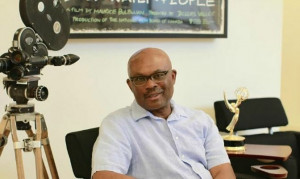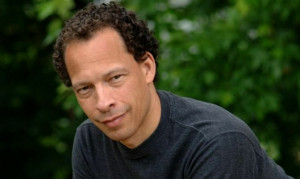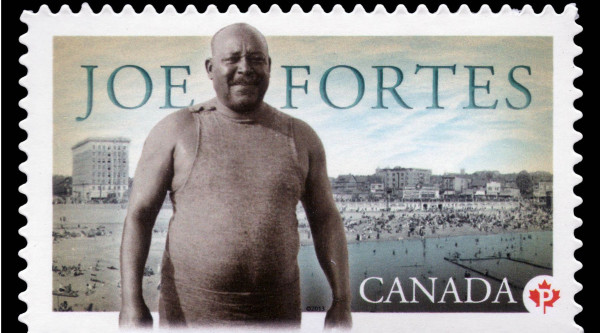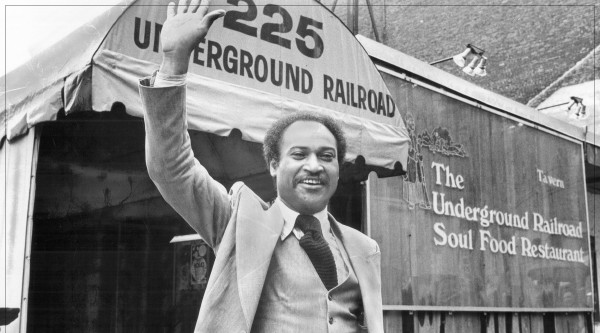Bent, a former door to door salesman, says little old ladies would always comment on his good looks. They would ask him if he was a model or an actor. “Acting presented itself to me through complete strangers who thought I had some sort of a connection with that world," says Bent.
A co-worker of Bent’s, who was an aspiring actor, would often badger him about getting into acting classes. Eventually, his co-worker dared him to a challenge. If Bent made the most money in sales that day, he would not hear anything more from his co-worker about acting; however, if his co-worker made more that day, he would give Bent the name of an acting coach. It was the beginning of his acting career.
"When you have a certain personality and are really comfortable with yourself, when life presents a situation that you had no idea you would get the opportunity for, you are more open to embracing what you don’t know; Even if, you don't understand the process. And that was my situation.”
Bent went on to star in several films including: Angela’s Eyes, Rookie Blue, and Lifetime biopic Aaliyah: The princess of R&B. He has worked with some of Hollywood’s biggest names including: Mark Wahlberg, Antonio Banderas, Whoopi Goldberg, David Caruso, Gerard Depardieu, and Alfre Woodard. He recently finished filming the BET/CBC six-part mini-series The Book of Negroes based on the bestselling novel by Lawrence Hill.
Bent plays Cheruka Tiano, a boy who helps slave traders capture the locals of Bayo in 1745. Aminata Diallo (played by Aunjanue Ellis) is one of those captured. Cheruka is later also captured, and once again their paths cross.
Tell me about the role Chekura plays in the life of Aminata?
He was her capturer at a young age, and they travelled across the oceans together into the Americas where they were sold into slavery. They were reunited years later. They found each other through what was called the fish net. The fish net is likened to today’s World Wide Web. They realized that the strong connection and feelings they had as children, now morphed into intimate emotions. They got married and had kids. I think the love that they had for each other is what kept them strong, and it kept them alive. It enabled them to find each other because they were always separating due to the circumstances they found themselves in. It is an incredible love story that I think people need to see because it has never been done in cinema before, especially with the slave back drop. It’s just never been done. I think it is a very important image for people to see.
There is a lot of chemistry between you and lead actress Aunjanue Ellis. What was it like working with her?
It was incredible working with Aunjanue Ellis. She is an incredible talent, very professional, and very giving of herself and her talent. She carried quite a weight on her shoulders for six months telling this story. She really allowed me to enter her world and play in her role, and she did not make me feel unwelcome. It was very inviting and very organic. Having that opportunity, having that experience, is life changing, absolutely. It is something I will cherish and carry with me throughout the rest of my life and acting career. This project is more than just acting. This is a project that allowed me to have a better sense of self, of history as a people, of how much we have come through, and where we have come from. Aunjanue was very courageous to carry that burden for us so that we can tell the story. I’m so overjoyed that I had the opportunity to work with her because she is such an excellent talent.
Chekura is a loving, encouraging, and supportive husband. It's not an image of the black man that we often see in mainstream media. How important is it for us to see more of that on screen?
It is very important not only for blacks to see but people in general. For black people, we need to understand that it’s okay and it’s acceptable to be able to express these emotions, especially to the black woman. We need to let them(black men) understand that being cherishing, loving, and nurturing is not a weak emotion; It is a very strong emotion that we need to display a lot more of in public as well, because we are not affectionate in public. I understand that this is something that is embedded in our fabric. But I think slowly, as we see these images more and more, we will become comfortable with ourselves enough to then display that to other people.
What do you think men and women can learn from the relationship between Chekura and Aminata?
Their love is unconditional. I think a lot of times, especially nowadays, we love with condition and you can’t do that. It just never works in your favour when you do that. This image, this story, The Book of Negroes, really takes you inside what unconditional love is. When it (love) gets a hold of you, you don’t dictate it. You don’t get to decide when you are going to be understanding and or be affectionate. It’s just something that is you. We tend not to see that too much nowadays because everything is so immediate, and if it is not convenient then we kind of move on. These two character’s love is unconditional. It is very strong; it is very passionate, and very sensual. I really think that if they didn’t have that type of love, they would not have survived. The time alone was very stressful, cruel, and daunting. They found peace in each other and within themselves. I just hope that this will open people’s minds to unlocking that part within their own lives, so they can experience it.
How much do you think slavery has affected the way black men and women interact with each other?
Oh, very much so. The Book of Negroes touches on this throughout the story. You understand that black people weren’t allowed to be married. They weren't allowed to have a family, and it was illegal; there were stiff consequences. You weren’t allowed to have children without the permission of slave owners. All of these things that are necessary for a strong relationship between a man and woman were ripped from us. We were stripped of these things, and we were robbed of them. You have this happening for centuries upon centuries and there is no way that it wouldn’t affect us as a people. It’s in our fabric, woven by history. And so today in 2015, we see the remnants. We see the after-effects of that woven fabric. Even though the physical chains are off, the mental chains are still very strong; the visual slavery images that are portrayed of black people all come into play.
All these things have definitely affected the way we are as a family, as a people, and of how we interact with each other. It was the way we were conditioned. It’s hard to change the behaviour, the condition, or the issue in the first place. If you are an alcoholic and you want to stop, you can’t tell yourself ‘I just want to stop.’ Some people can do it; for the most part, however, you need to go through a process, a detox. You go through a process so that you can overcome the condition of using the alcohol. Like any addiction, it comes from repetition; unfortunately, this condition that we have been given is more of a poison or say an illness. It is going to be very difficult to overcome it, and I think The Book of Negroes is a great start. It is a great launching pad. It gives us an insight on how difficult things were for us as a family unit or lack thereof, and it shows us why it’s so present in today’s society.
Follow Lyriq on Twitter @lyriqbent
Follow Lyriq on Instagram @lyriqbent
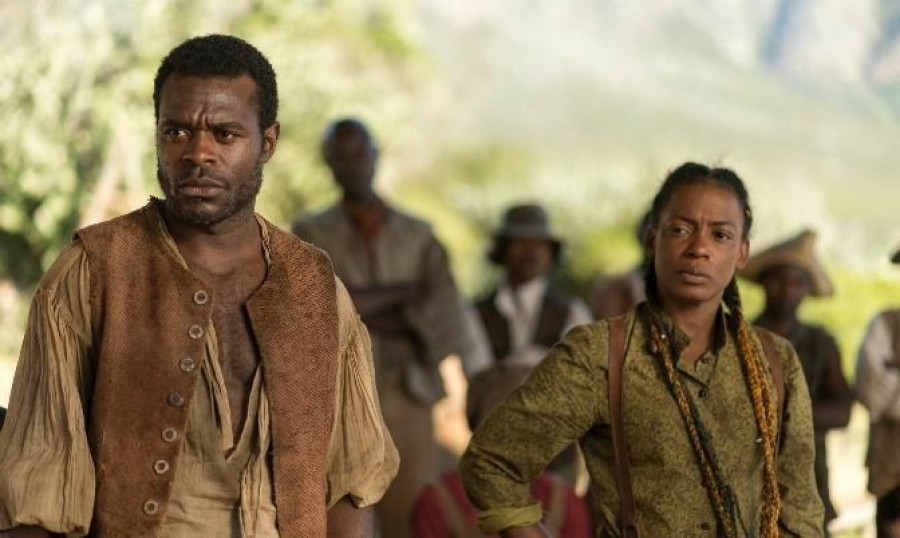
 By
By 

